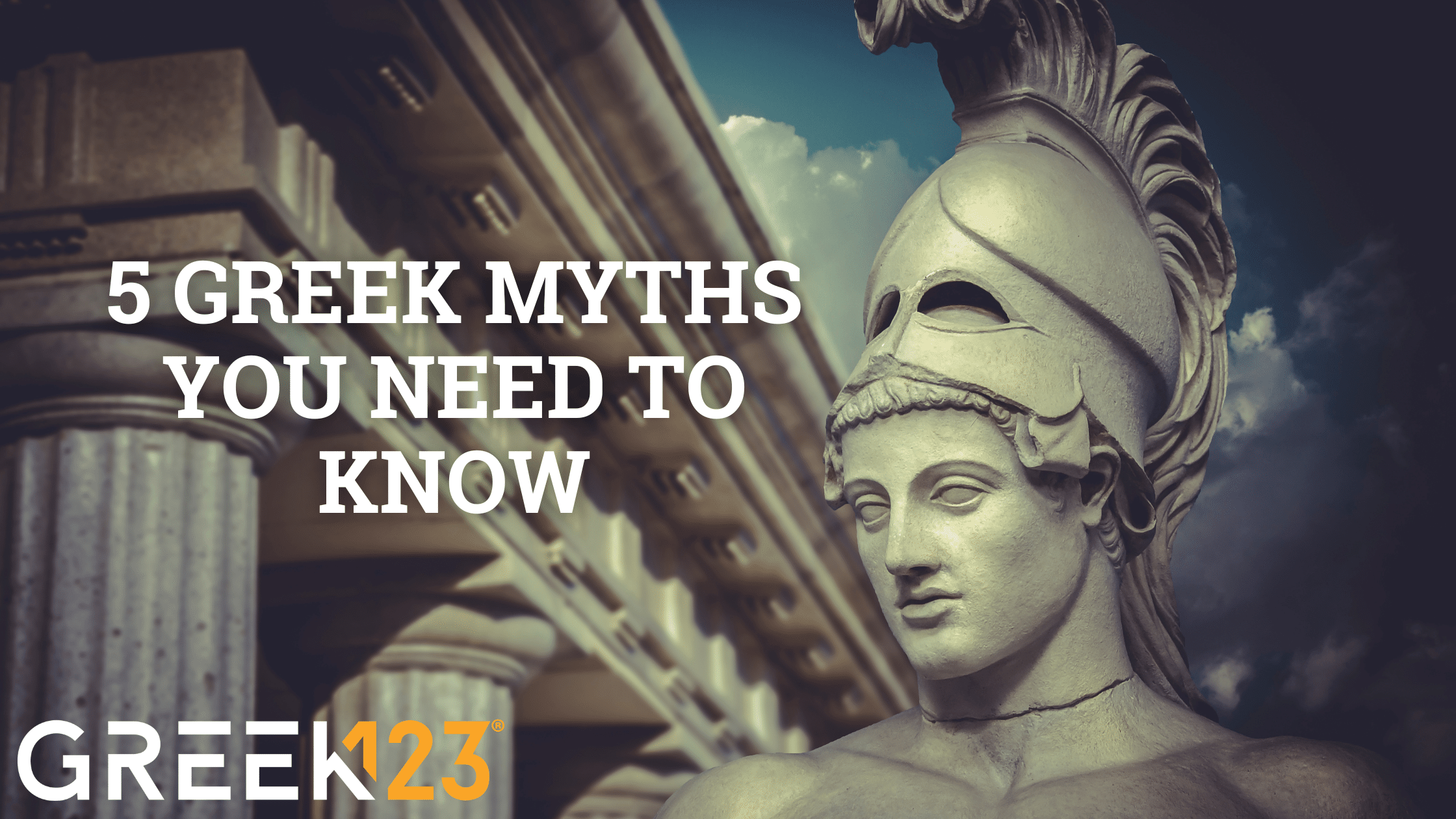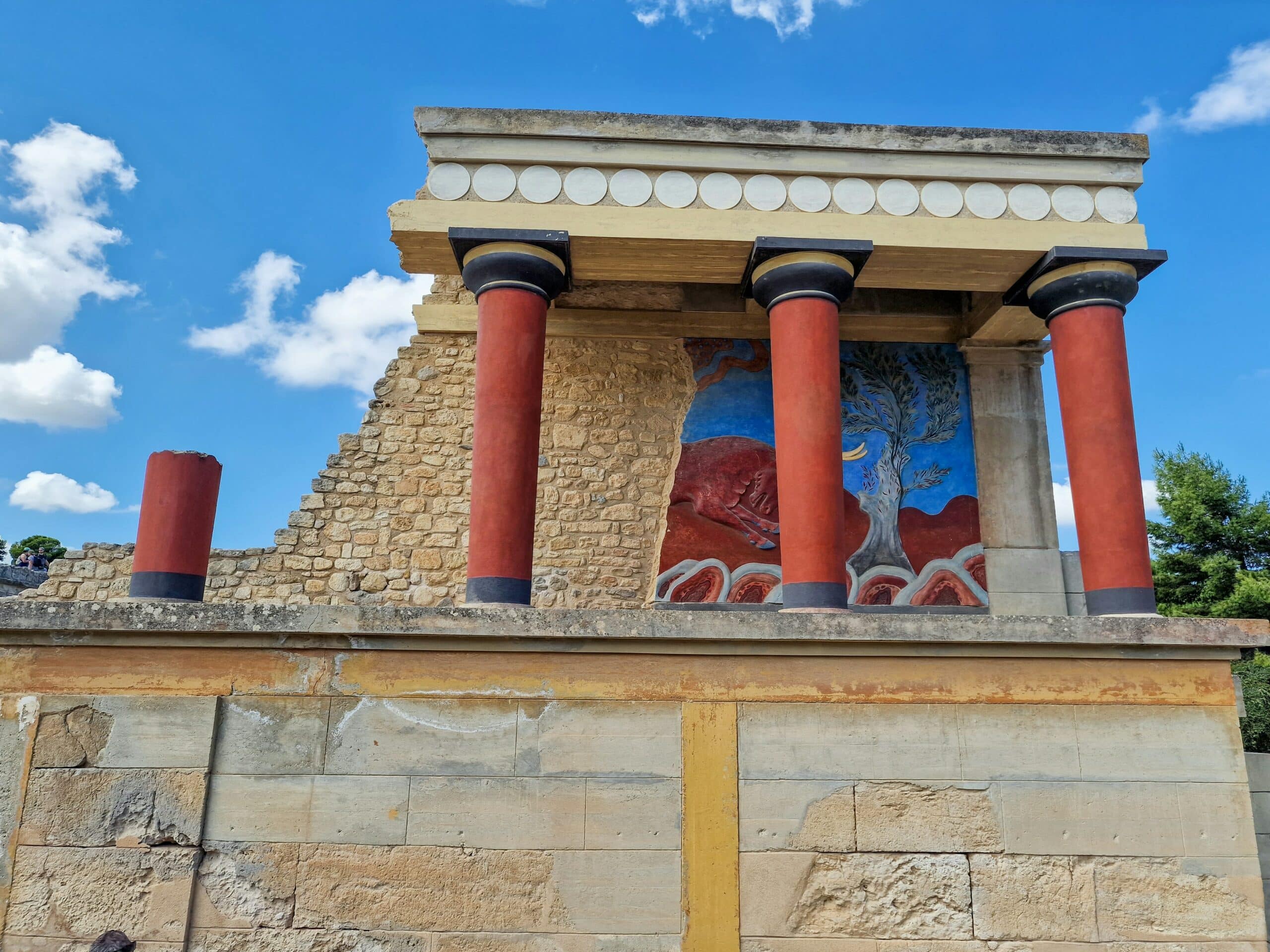
5 Greek Myths You Need To Know
The ancient Greek myths continue to fascinate and entertain minds even today. They are a source of endless inspiration; the more you know, the better your appreciation of this oral art. There are a number of well-known Greek poems, the Iliad and the Odyssey by Homer, and the Theogony of Hesiod, which also includes folktales and etiological myths. Hesiod contributed Works and Days, an epic poem about the agricultural arts that includes myth elements.
To make things a little easier for you, we’ve created a list of Greek myths worth knowing. With these myths in mind, you can deepen your knowledge of ancient Greek culture and become a Greek mythology expert in no time.
1. Pandora’s Box
According to the Greek myth, Pandora was the first woman on Earth created by the gods. Each one of them gave her a gift. Pandora in Greek means “the one who bears all gifts.”
Zeus wanted to punish mankind because Prometheus stole fire to give it to them. Pandora was created as a punishment and her gifts were beautifully evil, according to Hesiod. Hephaestus created her from clay, Aphrodite gave her femininity, and Athena taught her crafts. Hermes was ordered by Zeus to teach her to be deceitful, stubborn, and curious.
Pandora was given a box or jar, called “pithos” in Greek. The gods told her that the box contained special gifts, but she was not allowed to open it. Pandora was trying to tame her curiosity, but in the end, she could not hold herself back anymore. She opened it and all the ills and evil spirits that the gods had hidden started coming out. Pandora was afraid when she saw all the evil spirits coming out and tried to close the box as fast as possible, closing only hope inside.
According to Hesiod, hope indeed stayed inside as that was Zeus’ intention; Zeus wanted to let people suffer and understand that they should not disobey the gods.
2. The Abduction of Persephone by Hades
Persephone and Hades is another well-known Greek myth. Hades was the brother of Zeus and the god of the underworld. Persephone was the daughter of Demeter, the Goddess of nature.
Hades fell in love with Persephone and decided to kidnap her. The myth says that in one of the rare times he left the Underworld, he traveled above ground to pursue and kidnap her, while she was gathering flowers in a field. According to the myth, after her abduction, Demeter was searching for her everywhere, leaving behind her duties. Crops, plants and trees were beginning to die. The gods joined the search and found Persephone in the underworld. Hades didn’t want to lose his wife, so he tricked Persephone into eating pomegranate seeds, forcing her to return to the underworld.
As a compromise, Persephone would return to earth for 6 months every year. Demeter, delighted at the return of her daughter, was able to return to her work. Crops began to grow, flowers bloomed, and the leaves returned to the trees, giving us, of course, the seasons.
3. Theseus and the Minotaur
Pasiphae, King Minos of Crete’s wife, gave birth to the Minotaur, a half-man, half-bull creature, after sleeping with a bull sent by Zeus. King Minos was ashamed but hesitant to murder the Minotaur, so he secreted the beast in Daedalus’ Labyrinth at Knossos’ Minoan Palace.
King Minos was said to be imprisoning his enemies in the Labyrinth so the Minotaur might devour them, according to the myth. No one could ever escape the labyrinth alive because of its intricate design. Androgeus, Minos’ son, was killed by the bull. To avoid the epidemic brought on by Androgeus’ death, Minos was enraged and demanded that Aegeus, the monarch of Athens, send seven men and women to the Minotaur every year.
Theseus, son of Aegeus, chose to be one of the seven youthful men who would head to Crete to kill the Minotaur and put an end to the human sacrifice to the beast in the third year. Theseus was adamant about killing the Minotaur, despite King Aegeus’ attempts to persuade him otherwise.
Theseus promised his father that he would put up white sails when coming back from Crete, allowing him to know in advance that he was alive. The boat would return with the black sails if Theseus had been killed. Theseus met Princess Ariadne, the daughter of King Minos, who fell madly in love with him and decided to help Theseus. She gave him a thread and told him to unravel it as he penetrated deeper and deeper into the Labyrinth so he would know the way out after he killed the monster.
Theseus followed her suggestion and entered the labyrinth with the thread. He managed to kill the Minotaur and save the Athenians, because with Ariadne’s thread, he managed to retrace his way out.
Theseus took Princess Ariadne with him and left Crete, sailing happily back to Athens.
4. Daedalus and Icarus
The story of Daedalus and Icarus is a warning against overconfidence and oversight. As a craftsman, Daedalus was well-versed in the art of making wings from feathers and wax. When he was on the verge of escaping prison with his son, Icarus, he taught Icarus how to make these wings.
But when they were close to landing, Icarus flew too close to the sun and the wax melted, causing him to fall into the sea and drown.
The story of Daedalus and Icarus is a reminder of the danger of being overconfident or arrogant when making decisions or taking risks in life.
5. Prometheus and the Stealing of Fire
Prometheus was the son of the Titan, Lapetus, and the Oceanid, Clymene. Even though a Titan himself, together with his brother, Epimetheus, he sided with Zeus during the Titanomachy. However, after helping Zeus achieve victory in the war, he started a quarrel with him over his supposed unfair treatment of humanity. This led to Prometheus stealing fire from the gods and gifting it to humanity, which resulted in Zeus chaining Prometheus and sending an eagle to prey upon his continually regenerating liver. After some time, Zeus’ son, Heracles, shot the eagle and freed Prometheus. The Titan subsequently made peace with his savior’s father.
Conclusion
In ancient times, mythology was regarded as divine revelation and a way to educate people about the world. Mythology is an art form that has been passed on from generation to generation. You should read these myths and understand them in the right context.
Related


